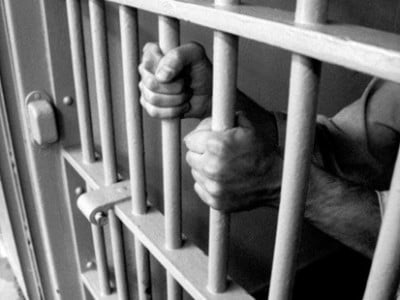There is a dichotomy in American that pits our
much-ballyhooed “love of freedom” against our disdain for it. In the past, it
was people of color – African-American slaves, Native Americans forced onto
reservations, Japanese-Americans forced into internment camps – who suffered
the indignities of this split personality. Today, it is the families of America ’s
prisoners.
For 250 years, this American nation imprisoned an entire
race of people called them “slaves”, and declared that they had no rights.
Then, they proceeded to build a southern economy – the plantation system – upon
the backs for these hapless men, women, and children. These southerners spoke
of God and of “honor” while inflicting endless abuse upon their captives. They fortified
this system of slavery with laws and institutions so that it would last.
When President Lincoln issued the Emancipation Proclamation,
it had a visceral effect on the South. One southerner called Lincoln ’s plan “despicable.” It would take
the deaths of 600,000 men in America ’s
Civil War to convince the South to let its captives go.
Today, Americans talk of being a “forgiving people” – a people
who believe in “second chances”. These Americans are no more sincere than the
men of the antebellum South who spoke of “honor” even as they castrated black
men, raped black women, and sold black children.
Slavery was one big prison cell that stretched from Maryland to Texas .
After it was dismantled, America
revisited its zeal for the imprisoned people with the internment of Japanese-Americans
during WWII. Entire families and communities had their lives ripped away for
no other reason than America
had the power to do so. There was no guilt in those imprisoned
Japanese-Americans. They were loyal, honorable American citizens. The guilt was
founded in the DNA of people who feel empowered when they imprison.
One hundred and fifty years after slavery, America still
boasts the most elaborate system of prisons on Earth. And for many Americans –
even today – to speak of freeing someone from one of America ’s gulags is hateful.
In 2012, Mississippi
governor, Haley Barbour, came under fire for pardoning prisoners his last days
in office. Incredulous Americans asked, “What’s wrong with him?” Real Americans
should be incredulous at those Americans’ incredulity, and ask, “What’s wrong
with them?”
Proponents of victims’ rights were the first to speak out
against Barbour. (Their thirst for vengeance is becoming legend.) When they
want to accent their fear of released prisoners, they speak of a “chilling
effect” – a scare tactic, similar to how slaveholders would stoke this nation’s
fear of emancipation by offering up images of freed black men “roaming the
countryside.”
These Americans think nothing of a prisoner who is eligible
to go home, spending another five years, another ten years in bondage. If you
were to ask: “What about the child who longs for her imprisoned granddad to
take her fishing?” many of these “prison zealots” are likely to respond, “What
about me?” They know nothing of prison, or of what it does to the families of
prisoners.
Be assured: Prison is a kicking. Prisoners are kicked, and
kicked, and kicked. It is a figurative kicking, unlike slavery which was a
literal kicking. But, it is a “kicking” all the same. And, you’re not just
kicking prisoners, America .
You’re kicking children and elderly parents. You’re kicking the life out of
them.
The parallels between prison and slavery are just. Slavery
was about denying a people their rights to a pursuit of happiness. Prison in America has become
a matter of denying the families of prisoners those same rights.
Of course, punishment is necessary when people commit
crimes. But when that punishment becomes gratuitous; when it drags on and on –
when a nation wreaks endless suffering upon one segment of its own people, the
soul of that nation despairs.
The institution of slavery was a sick enterprise. There, the
slave master despised his slave so that he heaped endless indignities upon him.
Yet, he seemed to love his slave so that he was willing to see the entire house
burn down rather than let his slave go.
Prison is not slavery. But as long as indignities are heaped
upon prisoners as though they are hated, yet they are kept endlessly as though
they are loved, we must begin to wonder if the State knows the difference.
Five months ago, I stopped wondering. On the 18th
of May, I embarked on a hunger strike to protest the treatment of prisoners and
their families in America .
In the ensuing 88 days, I refused all of the 264 meals offered to me. I
suffered plenty. Such was my resolve to challenge a system that holds me and my
family, and thousands of others, far beyond our release dates.
During my hunger strike – what I call “My days in the
wilderness” – I received letters from people around the country, many imploring
me to eat, lest I die. Many more assured me, saying “You will be going home one
day.” They assume I, and many other prisoners, will be going home without
understanding the nature of America ’s
prison system. Maybe I will be going home one day, but “one day” is not good
enough.
I ended my hunger strike on the 15th of August,
but my fight goes on. There is justice to be had in America . There are babies out there
who want to go fishing. I have great limitations. But if it is the last thing I
ever do, I will be trying to help those babies get their granddaddies home.

No comments:
Post a Comment